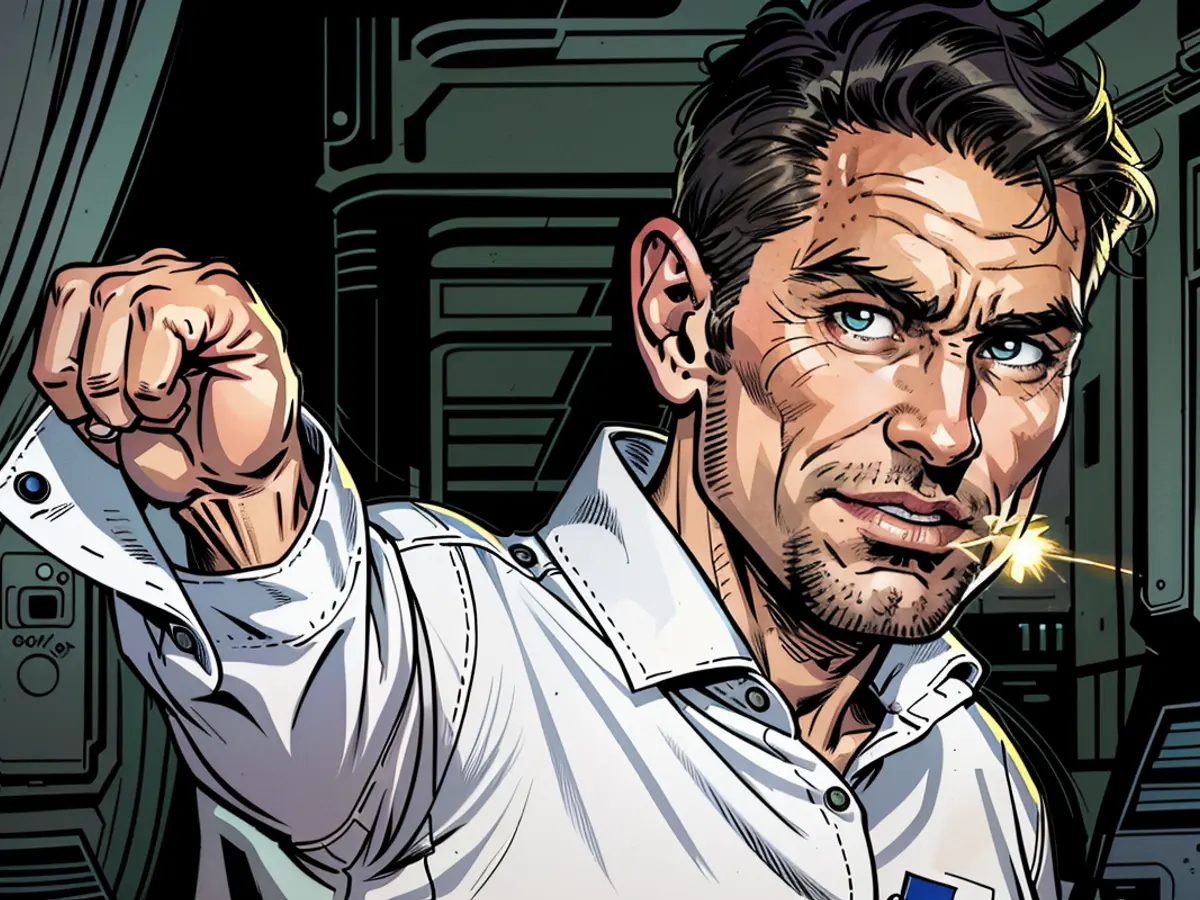Potentially, Björn Höcke might overlook his inclusion in the Landtag.
AfD's Leader in Thuringia, Björn Höcke, Faces Challenges Keeping His Seat in Future ParliamentAFD's faction leader in Thuringia, Björn Höcke, might struggle to secure his seat in the future state parliament. Surprisingly, it could be his successful party colleagues who put his position in jeopardy. Numerous AfD candidates competing in individual constituencies have strong chances of securing a direct mandate. However, Höcke faces tough competition from CDU candidate Christian Tischner in his Greiz II constituency. If Tischner wins and AfD gains more direct mandates than their second vote results warrant, no one, not even Höcke at the top, can claim a seat through the state list. In such a scenario, AfD might endeavor to persuade a successful direct candidate to relinquish their seat in the state parliament, thus enabling Höcke to retain his mandate.
16:48 AfD in Thuringia Plans to Celebrate Without Media AttentionThere's a high probability that there will be no media coverage of AFD's election celebration in Thuringia. Classified as a right-wing extremist group by the domestic intelligence agency, the party attempted to exclude various media outlets from the event. However, a court prohibited this, prompting the state party to exclude all press. A party spokesperson cited organizational issues, claiming insufficient space at the venue to accommodate all media representatives who applied for accreditation.
16:29 Around a Quarter of Votes Cast by Mail in SaxonyFor the election that Saxony's CDU Minister-President Michael Kretschmer labeled a "make-or-break election" for the state, approximately a quarter of eligible voters have already cast their ballots via mail-in voting. The state election commissioner anticipates 24.6% of voters to have voted by mail. The voter turnout thus far is only slightly higher than in 2019.
15:52 Höcke Votes in Lada – Ramelow With WifeThuringia's AFD state leader and top candidate, Björn Höcke, cast his vote this morning. He arrived at his polling station in Bornhagen, Eichsfeld district, in a Lada Niva, a Russian-made off-road vehicle. Minister-President Bodo Ramelow voted in Erfurt's state capital with his wife, Germana Alberti vom Hofe. He has been in office since 2014, most recently leading a minority government.
15:40 Higher Voter Turnout Than Last Time in ThuringiaIn Thuringia, 44.4% of voters had cast their ballots by 2:00 PM, representing a more than two-point increase compared to the last election five years ago. The state election commissioner expects a high turnout, excluding mail-in voters. In Saxony, the turnout was also higher than in 2019, albeit only slightly. The commissioner anticipates significantly more mail-in voters than in 2019. Polling stations close at 6:00 PM in both states.
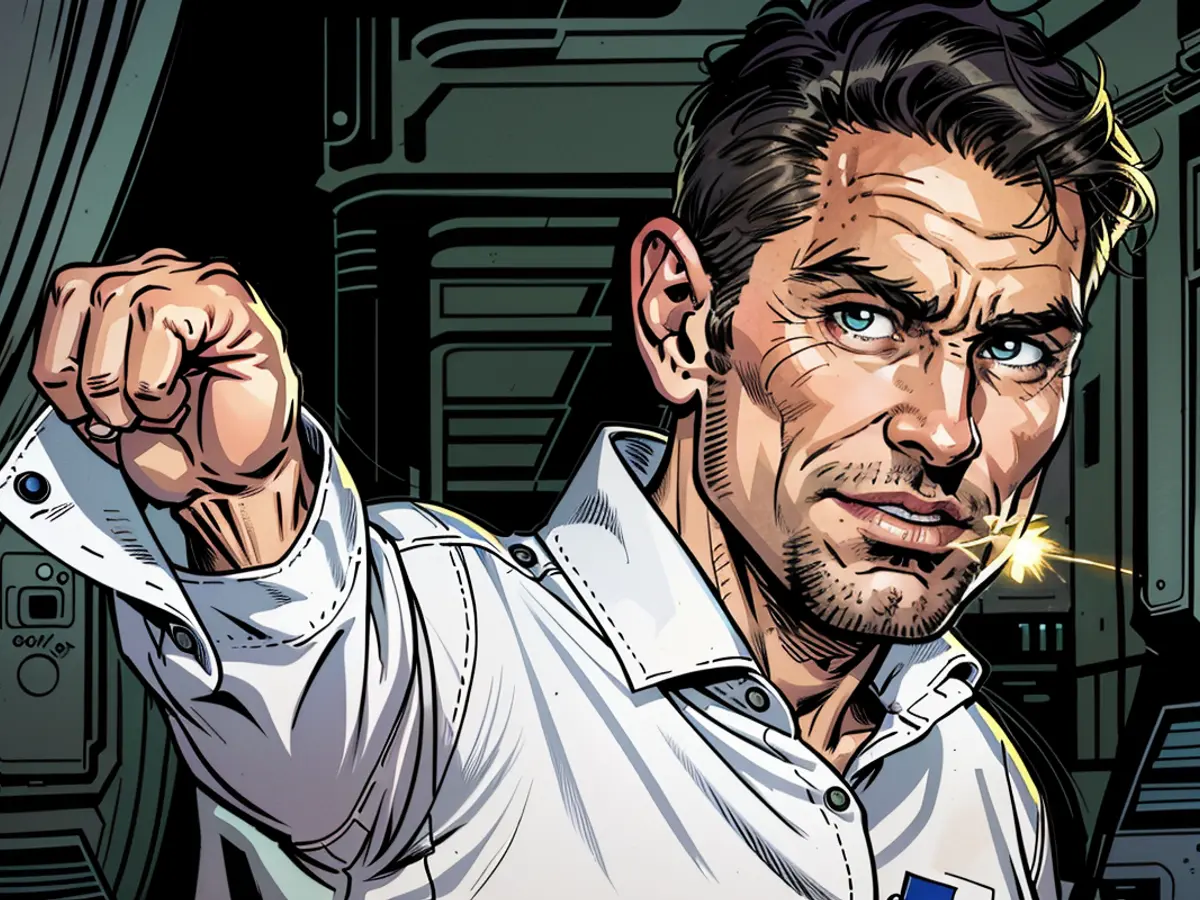
15:13 Kretschmer Hopes for Traffic Light Parties' Entry into State Parliament
14:13 Höcke Exits Polling Station RapidlyIn the Thuringia state election, Höcke, AFD's top candidate, cast his vote around noon. The far-right figure departed the Bornhagen polling station promptly and declined to engage with journalists on-site. Having traditionally lost to the CDU candidate in his home constituency of Eichsfeld, Höcke switched to the Greiz constituency this time. However, he also confronts the threat of defeat against the CDU in this new constituency.
13:50 Voting Turnout in Thuringia Similar to 2019 MiddayIn Thuringia, the voting turnout appears to be consistent with the previous parliamentary election. According to the state election commissioner, approximately 32% of eligible voters had cast their ballots in polling stations by noon. Mail-in voters are not included in these figures. In 2019, the voting turnout was 31.2% at this time. There seems to be more interest in the state election than in the European and local elections held earlier this year. In June, the voting turnout was 24.3% at the same time.
13:29 High Voting Turnout Expected in SaxonyIn the Saxony state election, a high voting turnout is anticipated. By midday, 25.8% of eligible voters had cast their ballots, the Statistical State Office in Kamenz reports. In the previous 2019 state election, the figure was 26.2% at this time. Mail-in voters are not yet included in the preliminary numbers. It is estimated that 24.6% of eligible voters will exercise their right to vote by mail, compared to 16.9% in 2019. The state election commissioner reports that the elections are proceeding smoothly in the morning without any disruptions.
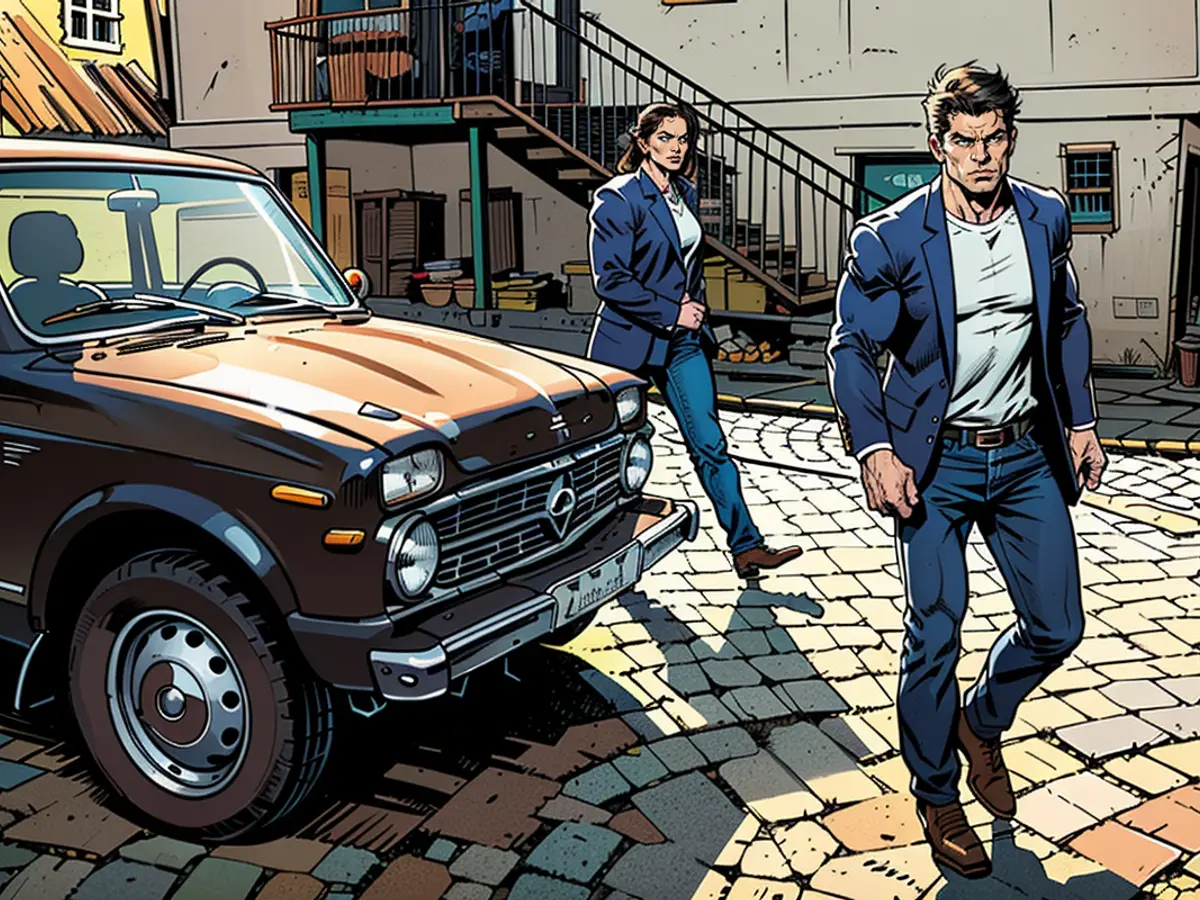
13:11 von Lucke: Election Result Could Weaken Berlin CoalitionThe results of the state elections in Saxony and Thuringia are still pending. Political scientist Albrecht von Lucke suggests in an ntv interview that if the SPD fails to secure a seat in the state parliament, it would be "almost like an earthquake." He discusses the election and its potential implications.
12:44 Police probing threat at voting stationAfter an event at a voting station in Gera, cops are investigating a potential threat. A man sporting an AfD logo tee entered the station to vote in the morning. The polling station manager requested him to take off the t-shirt as it was not allowed to display party advertisements within the station. The man complied but warned that he might return, unhappy with how he was treated upon leaving the premises. Police heard his statement and warned him. Furthermore, police in Erfurt are probing political vandalism ("Höcke is a Nazi") near voting stations as instances of property damage.
12:15 Watchdog warns about circulating false infoThe research organization Correctiv alerts about a recurring fake news story alleging that signing the ballot offers protection against ballot tampering. The Federal Election Commission confirmed to Correctiv that "the ballot should not be signed. Signing the ballot by the voter jeopardizes the privacy of the vote, invalidating the entire ballot."
11:51 Voigt wishes "steady majority relations"Thuringia's primary CDU candidate Mario Voigt has now cast his vote. He expressed hope that "many Thuringians exercise their right to shape their region's future," he stated while voting in Jena. He also expressed desire for "steady majority relations" to allow the region to progress once again.
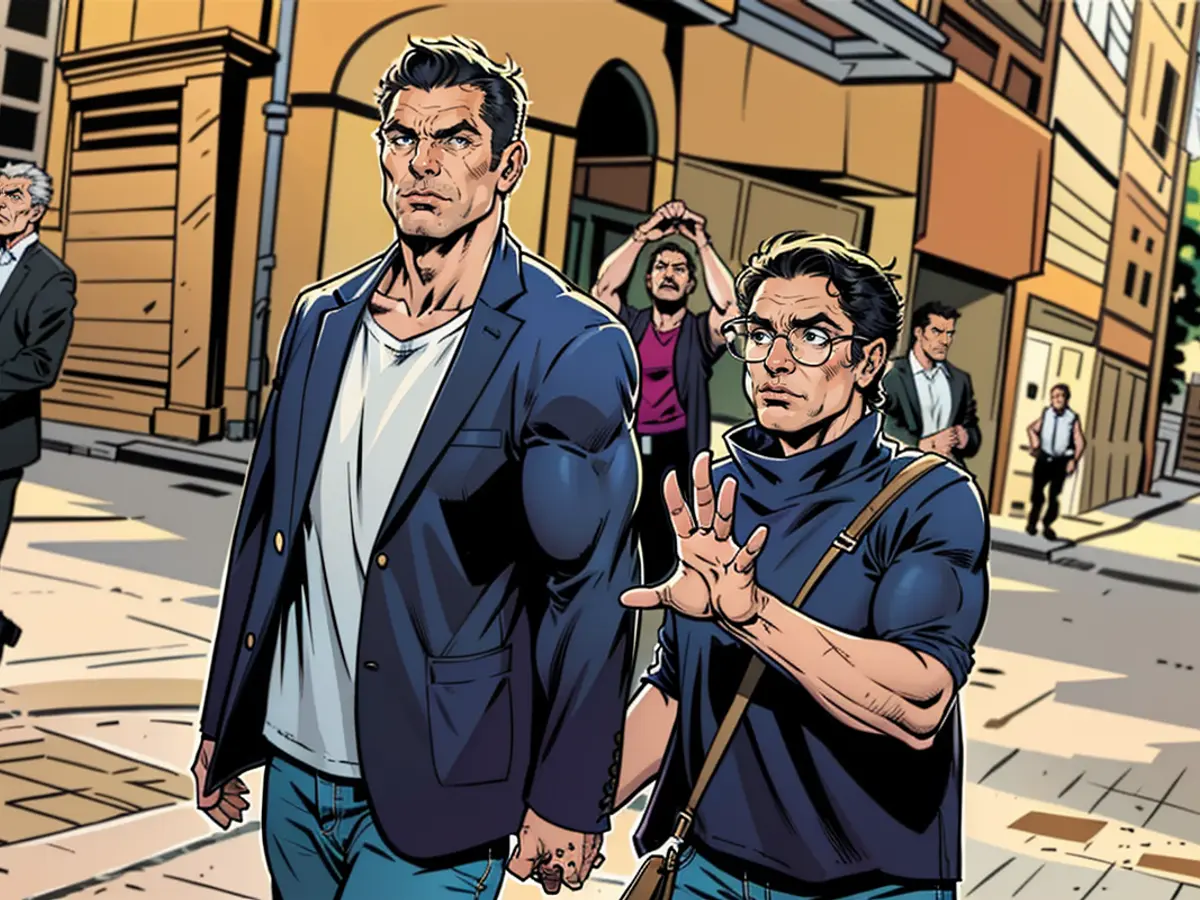
11:25 Sonneberg reports surge in right-wing extremist attacksSonneberg is the first district controlled by an AfD politician. However, activists complain of being heavily targeted - resulting in numerous quitters. It's also reported that the number of right-wing extremist assaults has doubled within a year. Experts connect this to the AfD district administrator.
10:57 Kretschmer voices at the voting stationSaxony's Chief Minister Michael Kretschmer calls the state election "probably the most critical election in 34 years." At the voting station in Dresden, he expresses gratitude to numerous individuals who have "voted differently in recent years" but have now opted for the "strong force in the moderate center," namely the Saxon Union. "This understanding will contribute to a government formation that benefits this region," Kretschmer continues. In recent polls, his CDU has been in a tight race with the AfD.
10:30 Ramelow: Wagenknecht "is not eligible to run"For Thuringia's Chief Minister Bodo Ramelow, election day is "a celebration of democracy" - despite the risk that he may not be re-elected. In an interview with ntv, the Left Party politician explains why he does not advocate for a minority government and why he doubts the competence of the BSW.
09:59 "Bad feeling for history" - historian criticism of election dateHistorian Peter Oliver Loew criticizes the election date for the state elections in Saxony and Thuringia on the 85th anniversary of the German invasion of Poland in 1939. "Anyone who deemed it appropriate to hold elections on September 1st evidently had no good feeling for history," the director of the German Institute for Polish Affairs told Redaktionsnetzwerk Deutschland (RND). With regards to the AfD, which is classified as "substantially right-wing extremist" in both states by the constitutional protection, Loew stated: "This could result in unpleasant associations if a party wins in Dresden and Erfurt whose relationship with the Nazi era is unclear.";
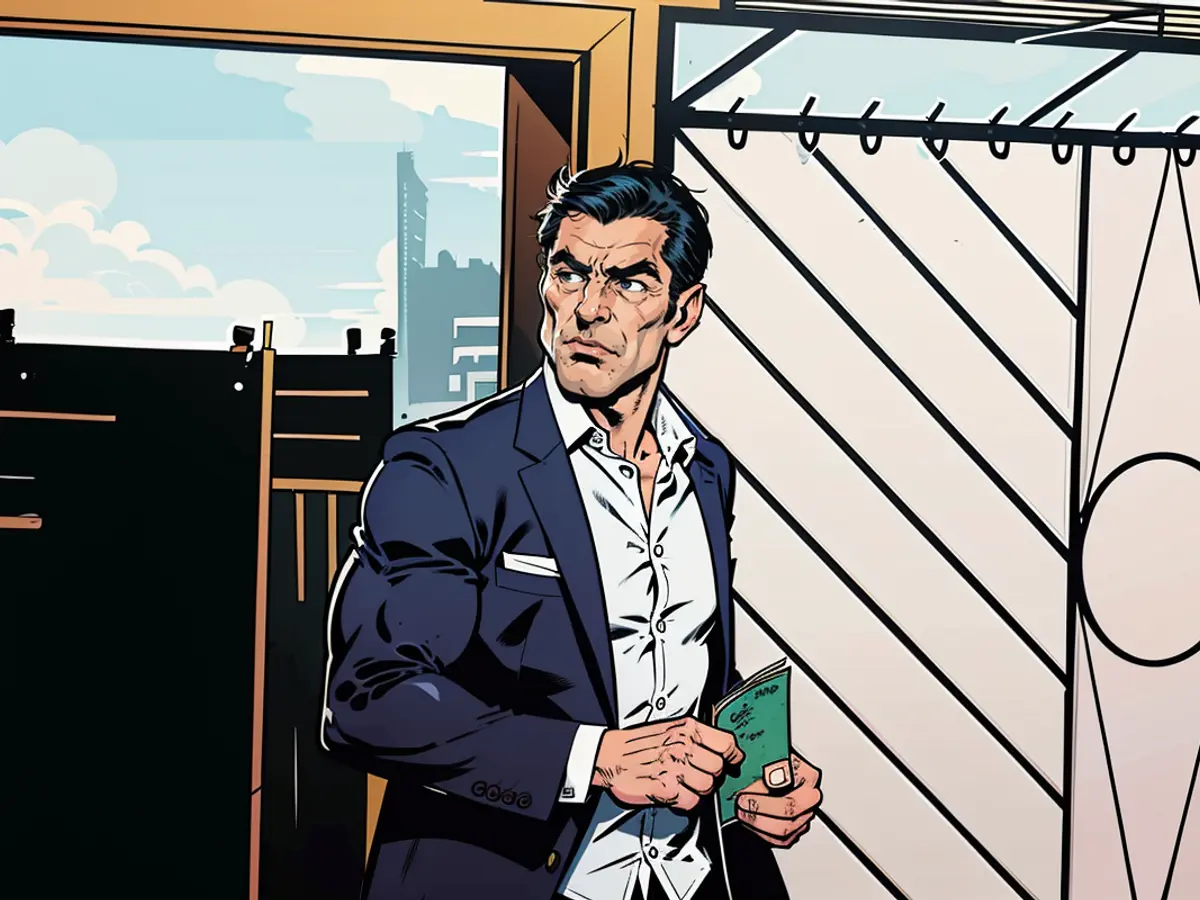
09:30 "Critical election": Complete data on the Saxony state electionApproximately 3.3 million eligible voters in Saxony have the chance today to select who will dictate the political direction in the Dresden state parliament in the future. The CDU could lose its position as the strongest force in the state for the first time since 1990. Saxony's Chief Minister Michael Kretschmer refers to the election as "crucial." "This is about everything.";
09:05 Kretschmer accuses opposition of "rushing things before the election"Election day has arrived in Saxony, and the question is: Will Chief Minister Michael Kretschmer extend the CDU's winning streak in the state? In an interview with ntv, he discusses his stance on the refugee controversy, the opposition, and the Ukraine war.
08:24 Could the AfD jeopardize democracy?Polls suggest: The AfD is likely to substantially strengthen its influence in the upcoming elections in Saxony and Thuringia. This poses a risk to democratic institutions, as research group has pointed out. Since the rule of law is not as robust as many believe.
08:00 Voting stations open in Thuringia and Saxony
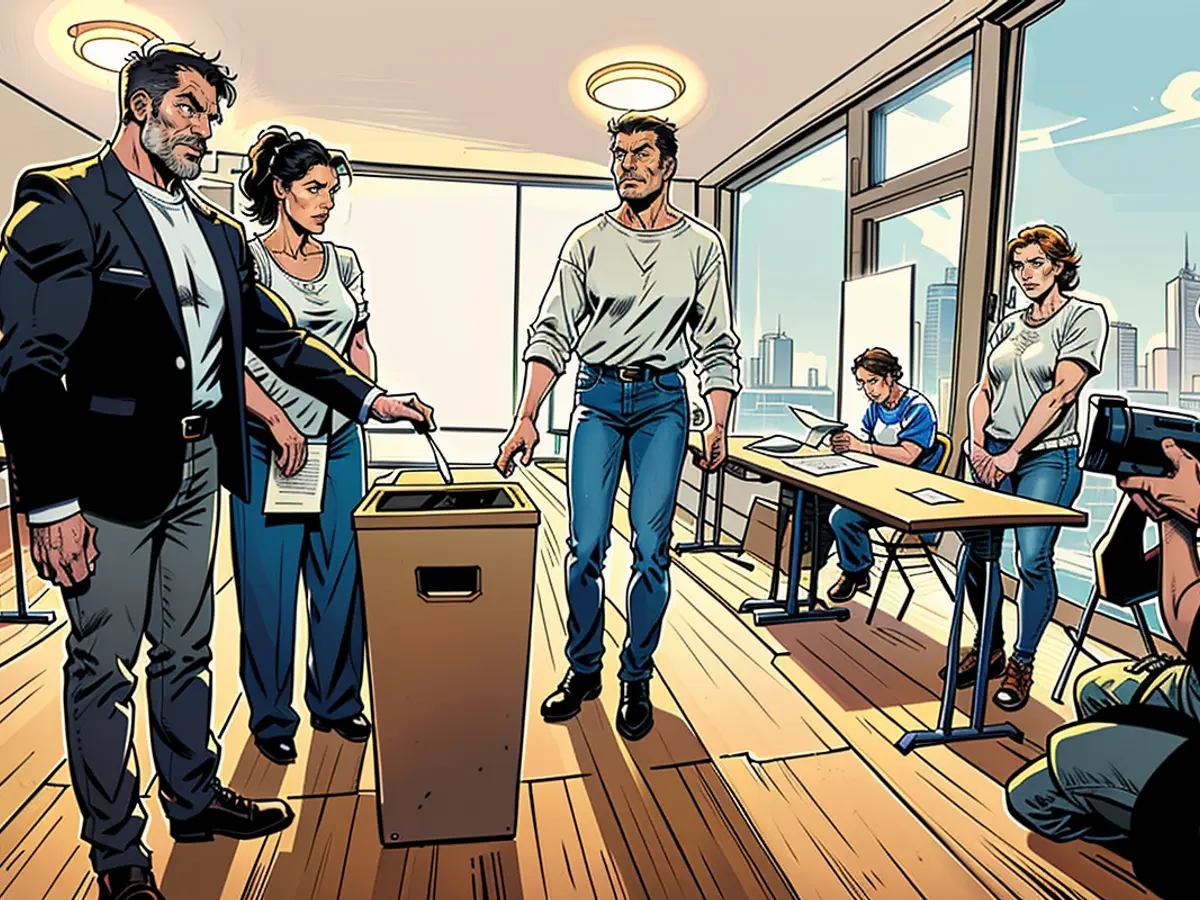
Today, new state parliaments are being selected in Thuringia and Saxony. In the polls, the AfD is ahead in Thuringia. In Saxony, the CDU of incumbent Chief Minister Michael Kretschmer and the AfD are in a tight contest. Initial projections are expected upon closure of polling stations at 6 pm. The elections in the two eastern German states also serve as a test for the traffic light coalition in Berlin.
For the present power-sharing trio of red-red-greens in Thuringia, headed by Minister President Bodo Ramelow (Left), they're not holding a majority in public opinion polls. A potential post-election arrangement might include the CDU, the Sahra Wagenknecht Alliance (BSW), and the SPD. In Saxony, it's uncertain if the existing coalition of CDU, SPD, and Greens still maintains its majority. Kretschmer isn't shutting down the notion of collaborating with the BSW. The Left could potentially get kicked out of Saxony's parliament. The same threat looms over the Greens and FDP in Thuringia.
In a potential coalition scenario in Thuringia, the Sahra Wagenknecht Alliance (BSW) might be invited to join the traffic light coalition led by the Left Party, CDU, and SPD.
If the BSW agrees to join the coalition in Thuringia, they would need to find a way to fill their designated seat in the state parliament. Since their candidates are not expected to secure enough direct mandates, they might consider filling the position with a candidate from another party.
